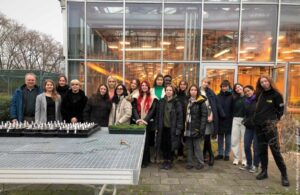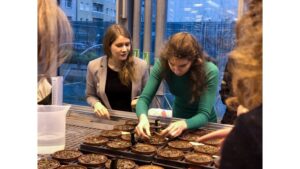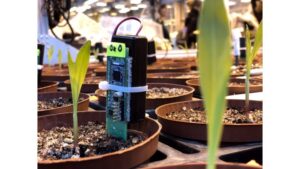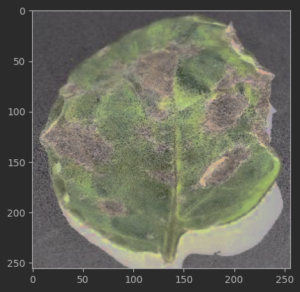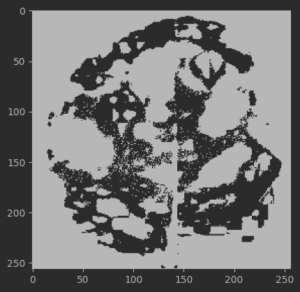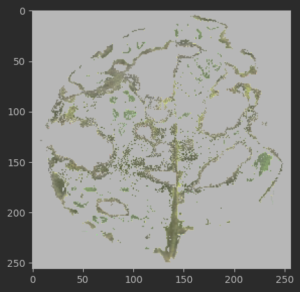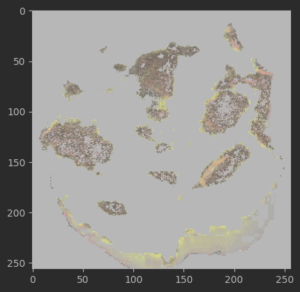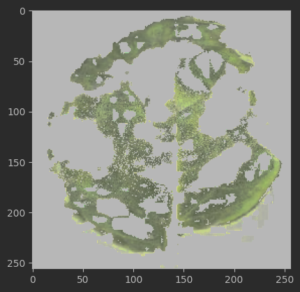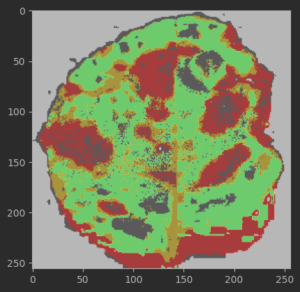21.02.2023
As part of InnoBioDiv, an innovative study of the interaction between plants and the environment in a changing climate that combines biology and modern Internet of Things technologies, our students Kateryna Stetsenko (ACTAKIT-20-3 group) and Daryna Nenova (ACTAKIT-21-1 group) visited the University of Köln, where they conducted research together with students of this university!
The main goal of the joint research project InnoBioDiv of the University of Cologne (UzK) and TH Köln (THK) is to create an innovation platform that will allow to test the impact of climatic parameters on plant growth performance and soil biodiversity using the results of the research of the Cluster of Excellence in Plant Science (CEPLAS). The innovation platform serves, on the one hand, to make the ecological interconnections in the root zone tangible, and on the other hand, as a communication platform for collecting concepts and exchanging ideas.
Part of this innovation platform is a flexible experimental platform that allows for realistic reproduction of ecosystems to implement research modules for teaching and learning at participating universities using state-of-the-art technologies in the areas of sensor technology, signal transmission and processing. The robotic system (FarmBot) allows to automatically regulate soil moisture according to measured and planned parameters in the greenhouse. In addition, a phytocabinet is available for further experiments.
Students can develop, implement, and test their own ideas in soil biology, which are supported by actual IoT-based technologies. The experimental platform allows for early involvement of scientists and students from different STEM fields in the development of soil and plant science and supports knowledge generation processes derived from inquiry-based learning.
As students are an important target group for the InnoBioDiv project for the development of training modules, their involvement is essential for further planning on module design and feedback on motivation and learning success.
As part of an interdisciplinary and interlingual training module, students from Ukraine are in Cologne from January 16 to 28. In this module, they are working together with students of the Master’s program Communication Systems and Networks (TH Köln) and biology students (UoC) to investigate the impact of climate change on plant growth. Participants from Ukraine are currently in Cologne to conduct experiments and participate in a video conference.
The course is a part of the “Plant-Ukraine” project, which involves six Ukrainian universities in addition to the two universities in Cologne (project leaders: Prof. Marcel Bucher (UoC), Prof. Uwe Dettmar (TH Köln)). The project helps to create an innovative and interdisciplinary teaching and learning program for biology and engineering. Students and researchers from Germany and Ukraine are developing their own ideas and concepts for research on climate change and its impact on plant growth and soil biodiversity.
One of the focus areas is interdisciplinary and intercultural cooperation. The project combines modern technologies, such as robotics and the Internet of Things – a network that connects virtual and physical objects – with in-depth knowledge of plant growth and the interaction between plants and microorganisms to develop innovative problems, experiments, and approaches.
Within the framework of the Plant-Ukraine project, funded by the Stiftung Innovation in der Hochschullehre, project partners the University of Cologne and TH Köln are developing further networking and collaboration opportunities for both students and researchers from Ukraine in addition to the practical training modules.
The Plant-Ukraine project is linked to the parallel project “InnoBioDiv” of the Federal Ministry for the Environment, Nature Conservation, Nuclear Safety and Consumer Protection. This project is creating an innovative platform that will allow us to test the impact of climate parameters on plant growth and soil biodiversity using modern technologies in the areas of sensor technology, robotics, signal transmission and processing. The main focus is on developing concepts for the adaptation of crops and ecosystems to climate change, soil biodiversity, as well as resource-saving use of water and nutrients in crop production and security of supply for the population. “Plant-Ukraine is expanding its activities in the InnoBioDiv project by engaging Ukrainian scientists and students.

